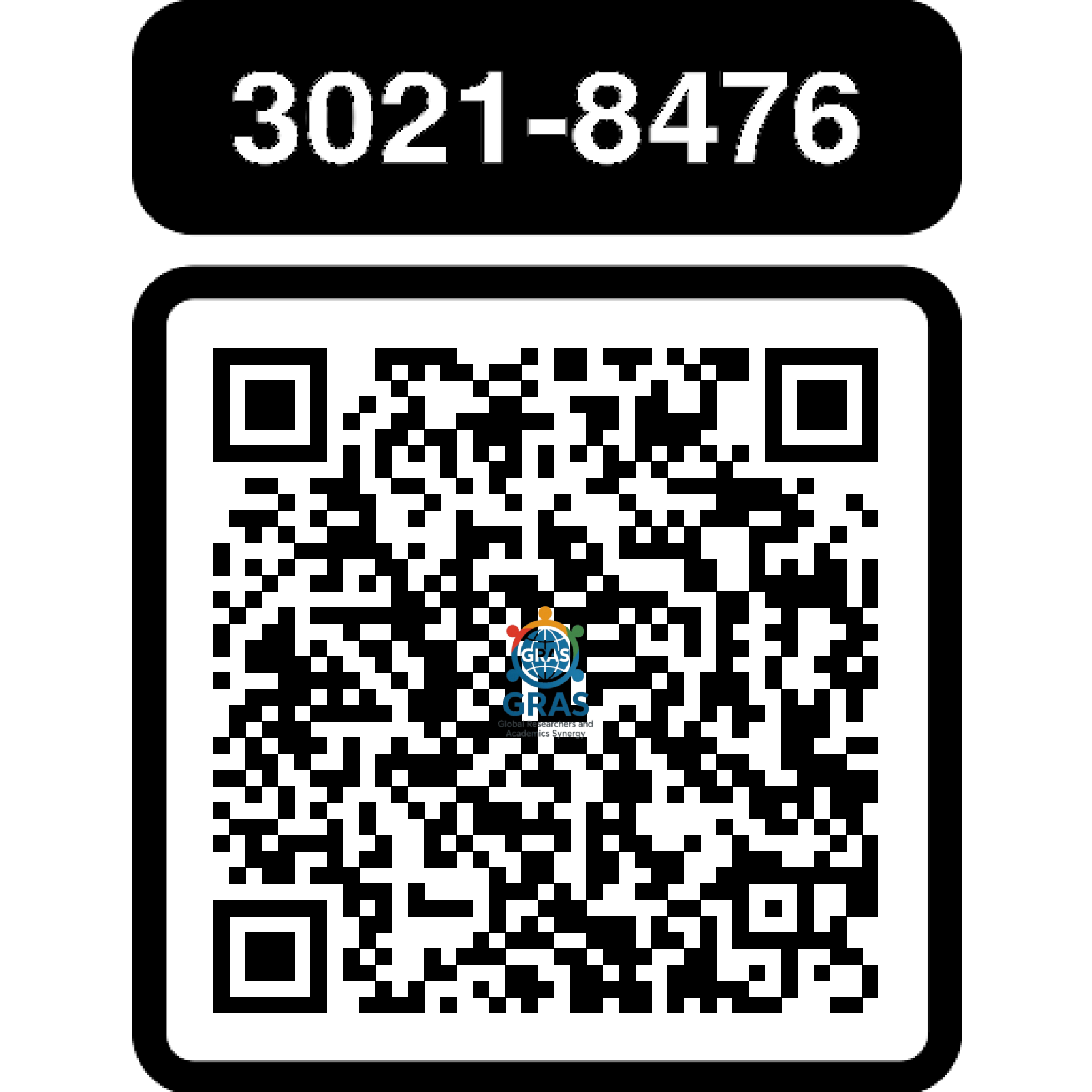Decolonizing Curriculum: A Study of Indigenous Pedagogy in Mindanao, Philippines
Keywords:
decolonizing education, indigenous pedagogy, curriculum development, Mindanao, Philippines, cultural responsivenessAbstract
This study examines the implementation of indigenous pedagogical approaches in educational institutions across Mindanao, Philippines, as part of broader decolonization efforts in curriculum development. Through a mixed-methods approach involving 240 educators, 180 indigenous community members, and 320 students from 15 schools across three provinces, this research investigates how traditional indigenous knowledge systems can be integrated into formal education while maintaining cultural authenticity. The study reveals that indigenous pedagogical practices, when properly implemented, significantly enhance student engagement (p < 0.001), foster cultural identity formation (p < 0.05), and improve academic performance in culturally relevant subjects. However, challenges persist in terms of teacher preparation, resource allocation, and institutional support. The findings suggest that successful decolonization of the curriculum requires systematic integration of indigenous worldviews, collaborative partnerships with local communities, and comprehensive teacher training programs. This research contributes to the growing body of literature on decolonizing education, providing practical frameworks for implementing culturally responsive pedagogy in postcolonial educational contexts.
Downloads
References
Ball, J. (2004). As if indigenous knowledge and communities mattered: Transformative education in First Nations communities in Canada. American Indian Quarterly, 28(3/4), 454-479. https://doi.org/10.1353/aiq.2004.0111
Battiste, M. (2013). Decolonizing education: Nourishing the learning spirit. UBC Press. https://doi.org/10.59962/9780774825832
Braun, V., & Clarke, V. (2019). Reflecting on reflexive thematic analysis. Qualitative Research in Sport, Exercise and Health, 11(4), 589-597. https://doi.org/10.1080/2159676X.2019.1628806
Cajete, G. (2000). Native science: Natural laws of interdependence. Clear Light Publishers.
Castagno, A. E., & Brayboy, B. M. J. (2008). Culturally responsive schooling for indigenous youth: A review of the literature. Review of Educational Research, 78(4), 941-993. https://doi.org/10.3102/0034654308323036
Constantino, R. (1982). The miseducation of the Filipino. Foundation for Nationalist Studies.
Creswell, J. W., & Plano Clark, V. L. (2017). Designing and conducting mixed methods research (3rd ed.). Sage Publications.
Deloria, V., Jr. (1999). Spirit and reason: The Vine Deloria Jr. reader. Fulcrum Publishing.
Freire, P. (1970). Pedagogy of the oppressed. Continuum International Publishing Group.
Gay, G. (2018). Culturally responsive teaching: Theory, research, and practice (3rd ed.). Teachers College Press.
Grande, S. (2018). Refusing the university: Indigenous presence and the politics of resurgence. Studies in Philosophy and Education, 37(6), 649-668. https://doi.org/10.1007/s11217-018-9631-3
Kawagley, A. O., & Barnhardt, R. (1999). Education indigenous to place: Western science meets Native ways of knowing. Ecological Education in Action, 117-140.
Kirkness, V. J., & Barnhardt, R. (2001). First Nations and higher education: The four R's—respect, relevance, reciprocity, responsibility. Journal of American Indian Education, 40(1), 1-15.
Ladson-Billings, G. (2014). Culturally relevant pedagogy 2.0: a.k.a. the remix. Harvard Educational Review, 84(1), 74-84. https://doi.org/10.17763/haer.84.1.p2rj131485484751
Lowe, K., & Yunkaporta, T. (2013). The inclusion of Aboriginal and Torres Strait Islander content in the Australian national curriculum: A cultural, cognitive and socio-political evaluation. Curriculum Perspectives, 33(1), 1-14.
Lowan-Trudeau, G. (2017). Indigenous environmental education research in North America: Historical contexts and contemporary issues. Environmental Education Research, 23(3), 379-390. https://doi.org/10.1080/13504622.2016.1142875
Malin, M. (2003). Competing interests between researcher, teacher and student in the ethics of classroom ethnography. Westminster Studies in Education, 26(1), 21-31. https://doi.org/10.1080/0140672032000086810
McCarty, T. L., & Lee, T. S. (2014). Critical culturally sustaining/revitalizing pedagogy and indigenous education sovereignty. Harvard Educational Review, 84(1), 101-124. https://doi.org/10.17763/haer.84.1.q83746nl5pj34216
Morcom, L. A. (2017). Self-esteem and cultural identity in Aboriginal language immersion kindergarteners. Journal of Language, Identity & Education, 16(6), 365-380. https://doi.org/10.1080/15348458.2017.1366271
Muhsyanur. (2022). The CORONA Model in Improving Students’ Scientific Writing Skills: Is it Effective? JPI (Jurnal Pendidikan Indonesia), 11(4), 685–697. https://doi.org/10.23887/jpiundiksha.v11i4.51589
Nakata, M. (2007). The cultural interface. The Australian Journal of Indigenous Education, 36(S1), 7-14. https://doi.org/10.1017/S1326011100004646
Paris, D. (2012). Culturally sustaining pedagogy: A needed change in stance, terminology, and practice. Educational Researcher, 41(3), 93-97. https://doi.org/10.3102/0013189X12441244
Pawilen, G. T., & Sumida, M. (2018). Indigenous knowledge and practices in science education: The case of the Philippines. Asia-Pacific Science Education, 4(1), 1-18. https://doi.org/10.1186/s41029-018-0025-1
Pence, A. R., & Kuehne, V. (2001). Hazards of a single story: Reclaiming indigenous knowledge in early childhood education. Canadian Journal of Native Education, 25(2), 181-188.
Pihama, L., Smith, K., Taki, M., & Lee, J. (2004). A research report of the experiences of Māori women in state care. Māori & Psychology Research Unit, University of Waikato.
Sleeter, C. E. (2011). The academic and social value of ethnic studies: A research review. National Education Association.
Smith, L. T. (2012). Decolonizing methodologies: Research and indigenous peoples (2nd ed.). Zed Books.
Tuck, E., & Yang, K. W. (2012). Decolonization is not a metaphor. Decolonization: Indigeneity, Education & Society, 1(1), 1-40.
Villegas, A. M., & Lucas, T. (2002). Preparing culturally responsive teachers: Rethinking the curriculum. Journal of Teacher Education, 53(20), 20-32. https://doi.org/10.1177/0022487102053001003
Wane, N. N. (2008). Mapping the field of indigenous knowledges in anti-colonial discourse: A transformative journey in education. Race Ethnicity and Education, 11(2), 183-197. https://doi.org/10.1080/13613320802110282
Wilson, S. (2008). Research is ceremony: Indigenous research methods. Fernwood Publishing.
Yunkaporta, T. (2019). Sand talk: How Indigenous thinking can save the world. Text Publishing.
Downloads
Published
Issue
Section
License
Copyright (c) 2023 Manuel A. Rosales, Jennelyn Cruz (Author)

This work is licensed under a Creative Commons Attribution-ShareAlike 4.0 International License.













